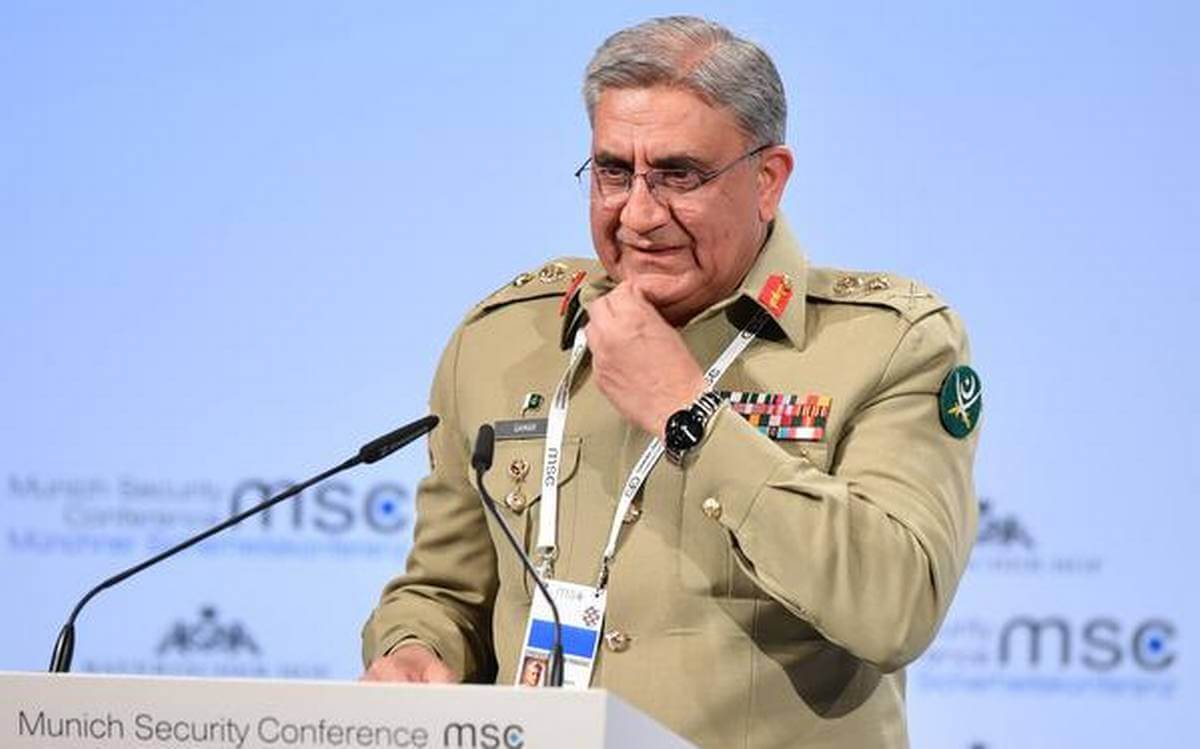Speaking at an event hosted by the Air Force Asghar Khan Academy in Risalpur, Khyber-Pakhtunkhwa, Pakistani Army Chief General Qamar Javed Bajwa called for a peaceful resolution of the Jammu and Kashmir conflict between India and Pakistan. He said, “Pakistan and India must resolve the longstanding issue of Jammu and Kashmir in a dignified and peaceful manner as per the aspirations of people of Jammu and Kashmir and bring this human tragedy to its logical conclusion.” He further added, “We stand firmly committed to the ideal of mutual respect and peaceful co-existence. It is time to extend a hand of peace in all directions.” However, he clarified that Pakistan’s desire for “peaceful co-existence” should not be viewed as a “sign of weakness” and that the Pakistani Army was willing and prepared to respond to any threat.
The Kashmir issue has long tainted the two Asian neighbours’ relationship. The conflict began in 1947, just a few months following the two countries’ partition after Pakistan occupied certain territories of the region. Eventually, the two sides agreed to refer the matter to the United Nations, which called upon India to conduct a plebiscite in the region after Pakistan called back its troops. However, neither did Pakistani troops withdraw from the region nor was a plebiscite conducted. The longstanding conflict further resulted in three wars since the partition. India has also often accused Pakistan of engaging in a “proxy war” in Jammu and Kashmir and of funding militants and terrorist activities.
The region has been subject to several attacks and controversies which have further deteriorated the two sides’ relationship. For instance, the Indian airbase in Pathankot was attacked by Jaish-e-Mohammad (JeM) militants in 2015, just a few days after Indian Prime Minister Narendra Modi paid a visit to Pakistan. India and Pakistan’s relations reached a new low following the Pulwama attack on February 26, 2019, which led to the death of 40 CRPF members. The tensions further spiked when India decided to rescind the special status of Jammu and Kashmir by abrogating Article 370 in October 2019. Since then, both countries have engaged in a war of words and have also been looking to gather international support against the other, specifically in multilateral forums such as the Financial Action Task Force and the Organisation of Islamic Cooperation.
However, General Bajwa’s comments have been viewed as a change of rhetoric from the country’s Army Chief, who has not spoken of peace between the two sides since the abrogation of the special status of Jammu and Kashmir. In the unlikely even that Pakistan abides by the sentiments of General Bajwa’s comments, this could be a significant turning point for the ongoing conflict between India and Pakistan. His statement is particularly relevant given the high level of influence that the Pakistani Army holds over the country’s authorities and politicians. However, these comments could be a consequence of the widespread criticism being targeted towards Pakistani Prime Minister Imran Khan and the Army Chief from the country’s opposition, which has formed an alliance with the aim of ousting Khan.
The Indian side has not reacted to General Bajwa’s comments. However, a counter-terrorism official in New Delhi said, “We will need to track if this is a one-off comment or there are other indicators of a possible change as well.” Hence, with the two sides’ relationship tainted with mistrust for decades now, it will take more than this for their relationship to take a positive turn.
Pakistani Army Chief Speaks of Extending “Hand of Peace” on Kashmir Issue
In a rare move, Pakistani Army Chief General Qamar Javed Bajwa spoke of the need to bring a peaceful end to India and Pakistan’s longstanding conflict in Kashmir.
February 4, 2021

SOURCE: GETTY IMAGES
